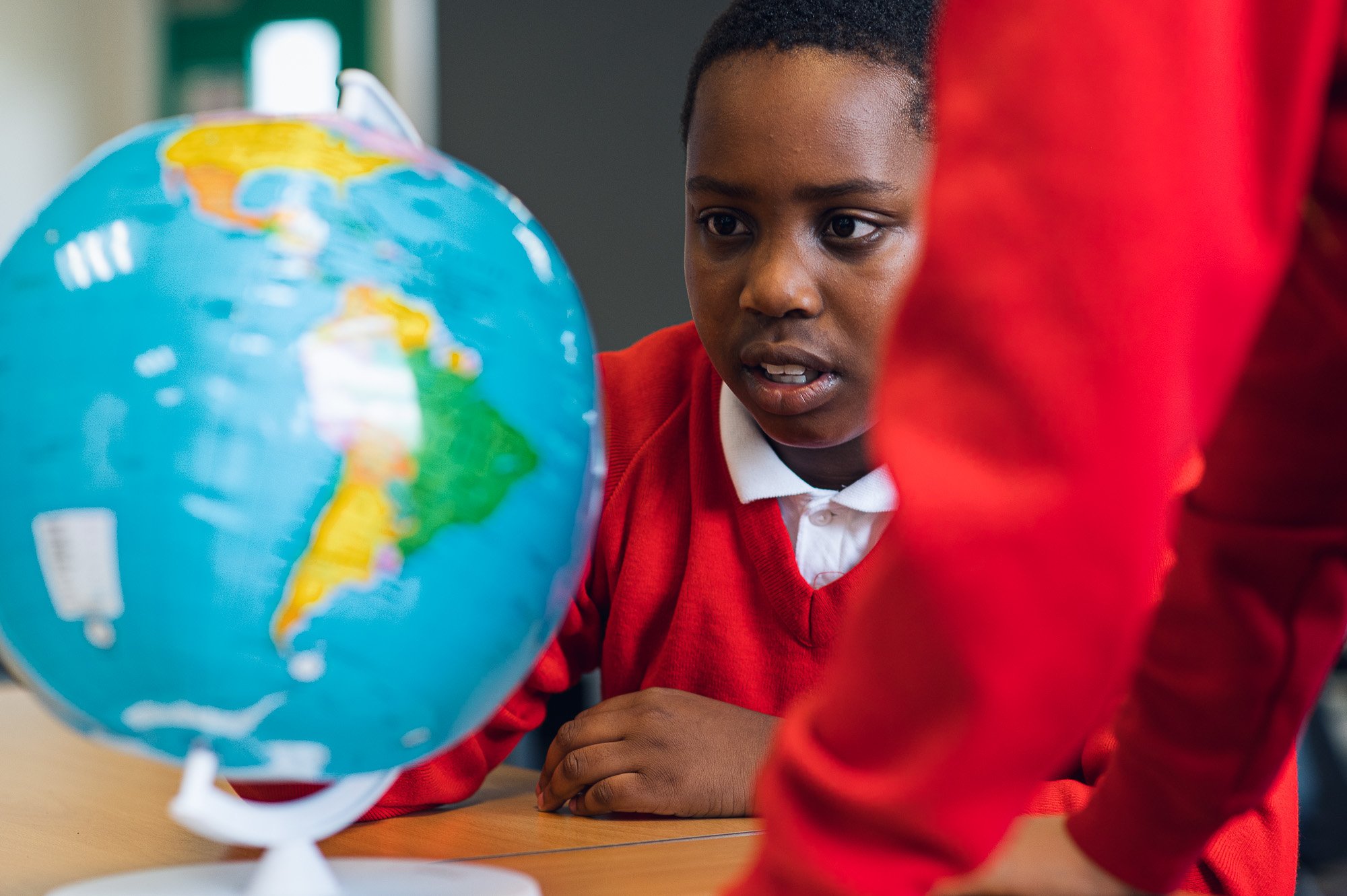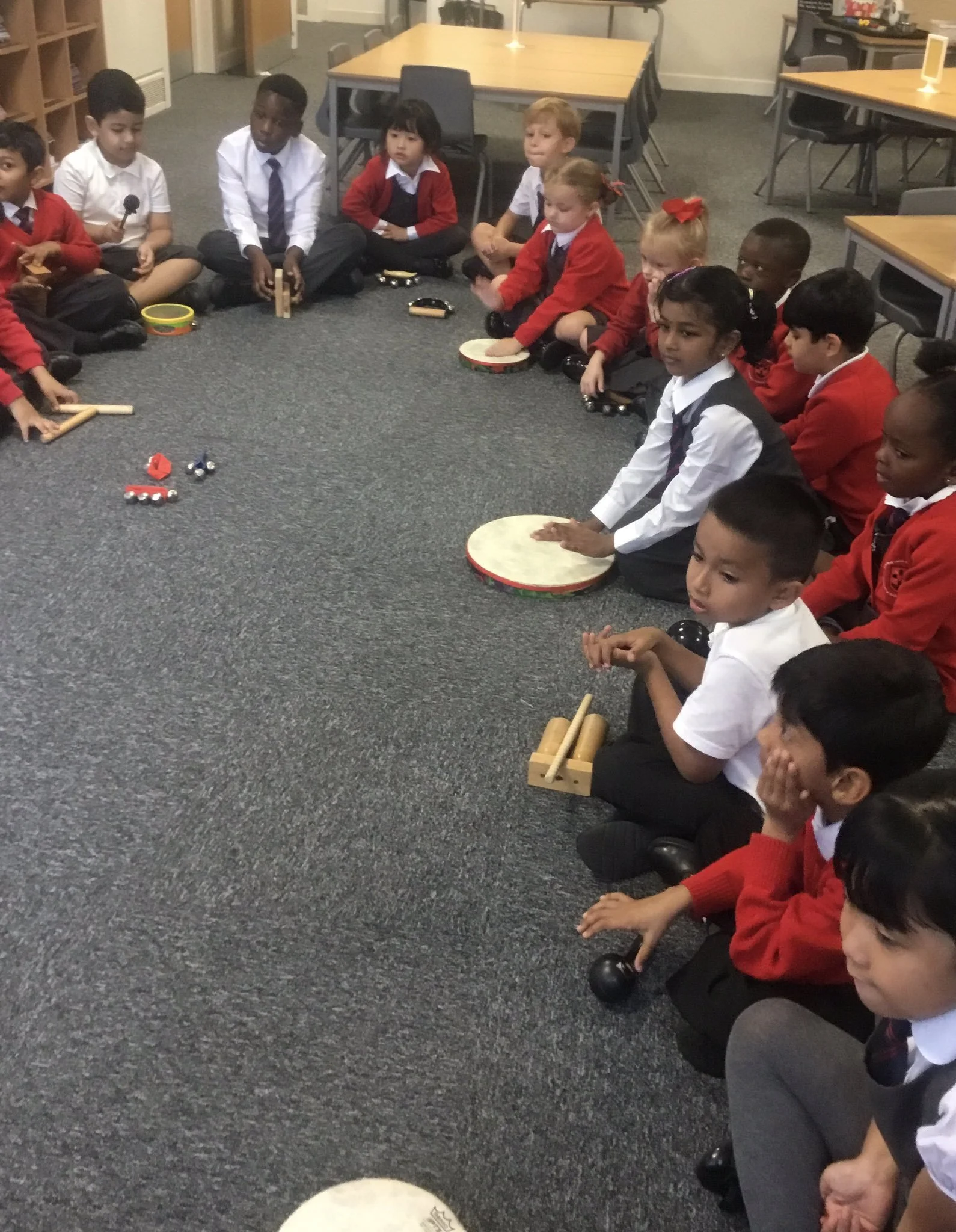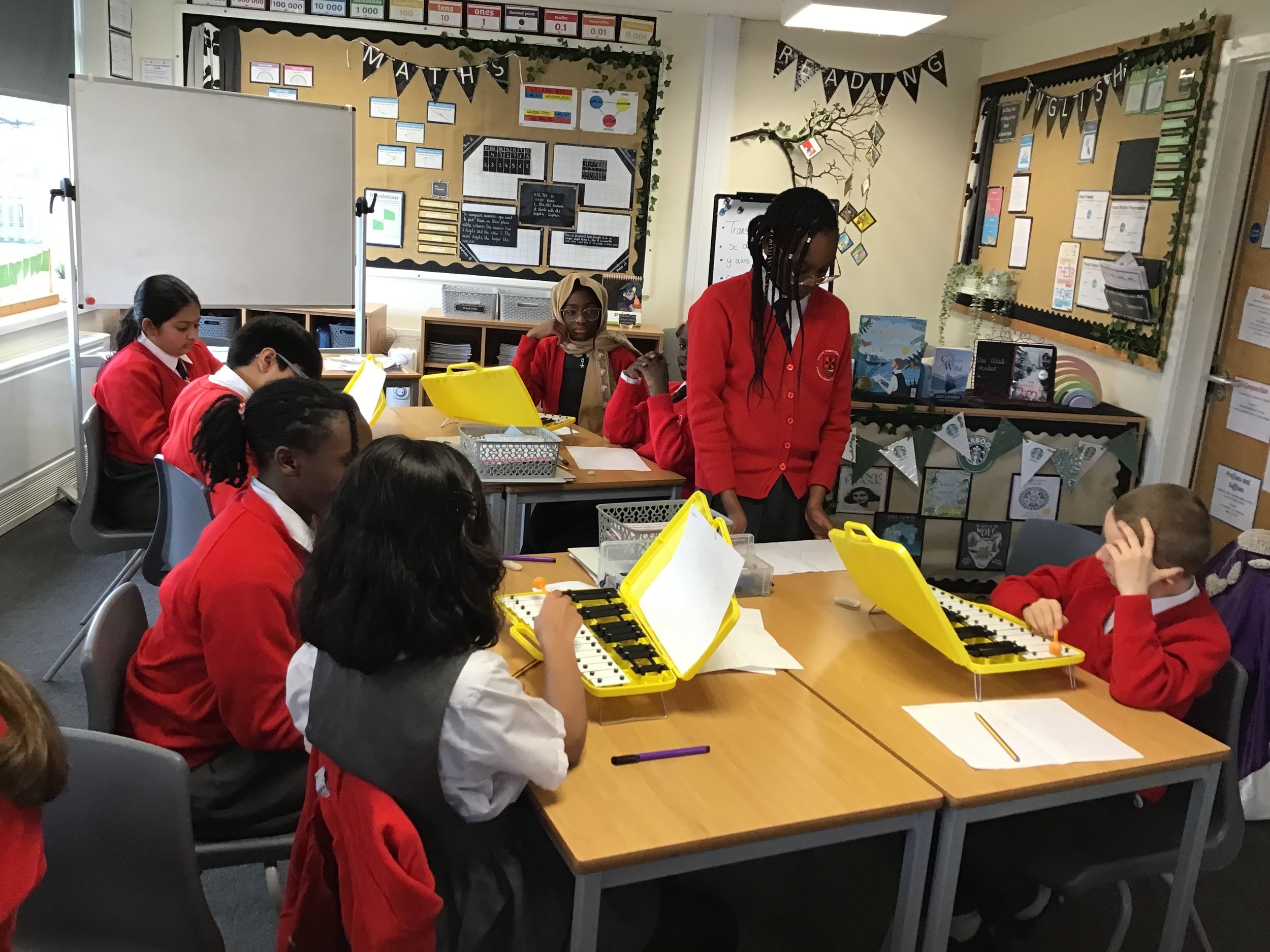
Music
Music
at Sacred Heart Primary School
At Sacred Heart Catholic Primary School and Nursery, our music curriculum intends to enrich children’s lives by giving them new experiences and inspiring children to be the best that they can be. We want our children to become creative by listening and responding to different musical styles, finding their voices as singers and performers, playing a variety of musical instruments and exploring the art of composing. Our music lessons will encourage children to be ambitious and develop a life-long love of music.
The music curriculum is designed to be bespoke and have direct links to the wider curriculum. It will be closely aligned with topics giving a more holistic style to learning. It has been designed by the music subject lead and enhanced by dedicated staff and specialist musicians. Our city and region has a deep history of diverse and inspirational musicians and music societies and we will use this to promote the love of music by giving children opportunities to hear live orchestras and invite musicians into school to give live concerts.
Music lessons will allow the children to access a wide variety of musical styles which will reflect our rich, varied and multi-cultural community. They will develop an understanding of the history and cultural context of music by listening to a range of artists and composers. Through music, our children will develop transferable skills such as communication, team- working, creative thinking, problem-solving and performance skills. Music allows to bring down academic barriers and promotes positive mental wellbeing, to further promote music in the school, extra-curricular clubs will be provided.
The music curriculum is designed to:
Develop children’s musical skills as an individual and as part of a team by teaching them to
Sing
Compose, including music technology.
Play a musical instrument.
Listen to music in order to review and evaluate.
Enjoy and appreciate a range of musical styles.
Implementation of Music
At Sacred Heart Catholic Primary School, we endeavour to make music an enjoyable learning experience. We encourage children to participate in a variety of musical experiences through listening to a variety of music, having an opportunity to play a wide range of instruments and singing. Throughout the school from EYFS to Year 6, we believe that singing lies at the heart of good music teaching. Our teaching focuses on developing the children’s ability to sing in tune with other people. Through singing songs in lessons, hymn practice, assemblies and Church, children learn about the structure and organisation of music.
As children get older, we expect them to maintain their concentration for longer and to listen to more extended pieces of music. As children get older, we expect them to maintain their concentration for longer and to listen to more extended pieces of music. Children develop descriptive skills in music lessons when learning about how music can represent feelings and emotions. We teach them the disciplined skills of recognising pulse and pitch. Children also learn how to work with others to make music and how individuals combine together to make sounds. We also teach them simple musical notation and how to compose music.
We recognise that there are children of widely different musical abilities in all classes, so we provide suitable learning opportunities for all children by matching the challenge of the task to the ability of the child. We achieve this in a variety of ways by:
· setting common tasks which are open-ended and can have a variety of responses;
· setting tasks of increasing difficulty (not all children complete all tasks);
· grouping children by ability in the room and setting different tasks to each ability group;
· providing resources of different complexity depending on the ability of the child;
· using classroom assistants to support the work of individuals or groups of children
From EYFS to Year 6 we base our music scheme using the sequence of learning through ‘Kapow’. Kapow offers a cross-curricular approach to the teaching and learning of musical skills throughout the school which is closely aligned to each topic which helps to create a holistic style of learning. While there are opportunities for children of all abilities to develop their skills and knowledge in each teaching unit, the planned progression for each year group is built into the scheme of work which means that the children are increasingly challenged as they move through the school. In Key Stage 1, learning is taught through the strands of singing, listening, composing and musicianship: which includes pulse/beat, rhythm and pitch. In Key Stage 2 learning is taught through the strands of singing, listening and composing which includes improvising and performing. This scheme is adapted and enhanced to our school context and our children’s needs by delivering instrumental and singing skills and knowledge through expert practitioners of the Liverpool Philharmonic and Liverpool Metropolitan Cathedral.
Teachers always personalise this curriculum to meet the needs of our pupils. The class teacher follows short-term plans for weekly sessions, which list the specific learning objectives of each lesson. Other resources/materials are used to supplement lessons when and where appropriate, such as the Kapow scheme of work. The class teacher is responsible for keeping these individual plans.
In Key Stage 2 for one half term, all children will have a weekly instrumental violin lesson. These sessions are delivered by a peripatetic music teacher. In the lessons, children develop skills to read and understand musical notation. This year, we will also trial the Archdiocesan singing project, with every class over the year taking part.
This year we intend to take part in two concerts at the Royal Liverpool Philharmonic Hall. We believe that being so close to an internationally recognised Music Hall and orchestra allows the children to get involved in live music making and listen to inspiring live concerts. The society provide a scheme of work with a chosen theme which links to the concerts that the children attend. Teachers are provided with training on how to deliver their music scheme which links to the Model Music Curriculum.
Impact of Music
We believe our children will:
· Be passionate, determined and engaged musicians.
· Develop personal qualities that will be beneficial in their daily lives and the wider world as sound communicators, fair collaborators and confident performers.
· Understand their own musical society, history and culture, alongside an appreciation of others’.
· Take pride in their independent creativity, and allow for thoughtful reflection and improvements.
· Appreciate the contribution of others, and the benefits of successful, cooperative teamwork.
· Values music as a provider of unity, communication and opportunity.
Overview and Progression Maps

Music in Action



















